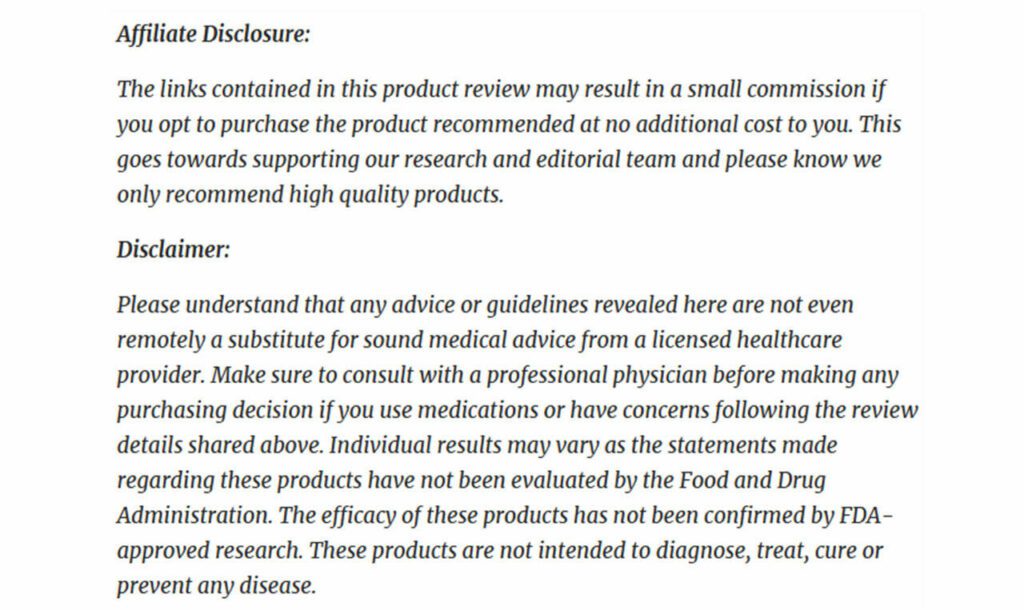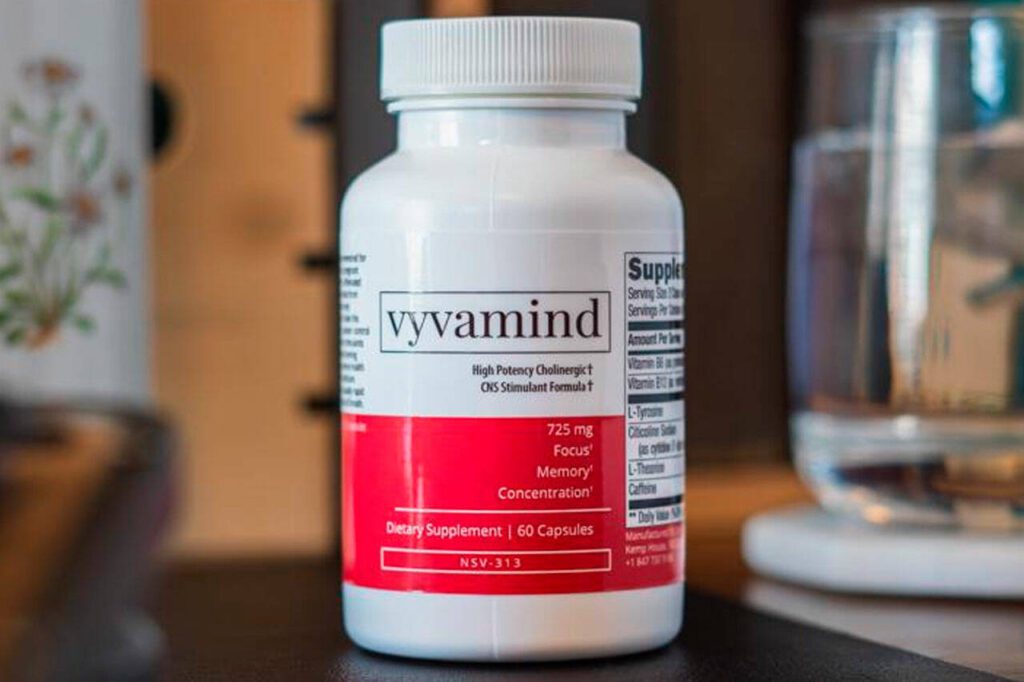As someone who’s researched ADHD treatments, I’ve found Focalin and Adderall are two common medications that often come up. Both are stimulants used to manage ADHD symptoms, but they work in slightly different ways. Focalin contains dexmethylphenidate, while Adderall is a mix of amphetamine salts. This fundamental difference affects how they function in the body.
I’ve learned that Focalin tends to have a shorter-lasting effect than Adderall. This can be good or bad, depending on a person’s needs. Some people I’ve talked to prefer Focalin because it wears off quicker, helping them sleep better at night. Others like Adderall’s longer-lasting effects for all-day symptom control.
Both medications carry risks of side effects and potential for misuse. I always remind people that only a doctor can determine the proper medication for them. Everyone’s brain chemistry is unique, so what works great for one person might not be ideal for another. Working closely with a healthcare provider to find the best treatment plan is essential.
Unlock Your Cognitive Potential with Vyvamind
Are you in need of a powerful cognitive enhancer without a prescription? Vyvamind is the top over-the-counter (OTC) natural alternative to Adderall. Engineered to provide quick improvements in focus, alertness, motivation, and mental energy, Vyvamind is your ideal solution for optimal cognitive performance.
Why Choose Vyvamind?
Vyvamind combines effective natural ingredients to create a nootropic supplement targeting multiple aspects of cognitive function. Here’s why Vyvamind is the best choice for enhancing mental performance:
- Sharper Focus: Vyvamind’s carefully selected ingredients help sharpen your attention, allowing you to concentrate more effectively and boost productivity.
- Increased Alertness: Natural stimulants like caffeine keep Vyvamind users awake and alert, helping to combat fatigue and drowsiness.
- Enhanced Motivation: Ingredients like L-tyrosine support neurotransmitter production, improving your drive and motivation for demanding tasks.
- Boosted Mental Energy: Vyvamind significantly boosts mental energy, keeping you mentally agile and efficient throughout the day.
Vyvamind’s Key Ingredients
- Caffeine Anhydrous: Boosts alertness and reduces fatigue.
- L-Theanine: Promotes relaxation without drowsiness, balancing caffeine’s effects.
- L-Tyrosine: Supports the production of dopamine and norepinephrine, enhancing focus and motivation.
- Citicoline: Enhances brain energy and cognitive function.
- B Vitamins: Support brain health and energy metabolism.
Safe and Effective Cognitive Enhancement
Vyvamind is perfect for individuals seeking a natural, effective, and safe alternative to prescription cognitive enhancers like Adderall. With its 100% natural ingredients, Vyvamind offers a safer choice without the risks of synthetic drugs. Whether you’re a student, a professional, or anyone needing a cognitive boost, incorporating Vyvamind into your routine can help you achieve peak mental performance healthily and sustainably.
Don’t let cognitive fatigue hinder your performance. Try Vyvamind today and unlock the benefits of this powerful OTC nootropic supplement. Vyvamind is your ultimate partner for enhanced focus, alertness, motivation, and mental energy, all while being completely natural and safe.
Overview of ADHD and Its Treatments
ADHD is a common condition that affects both kids and adults. It can make it hard to focus, sit still, and control impulses. As someone who’s studied ADHD, I’ve learned there are different ways to manage it.
Doctors often prescribe stimulant medications to help with ADHD symptoms. Two popular options are Focalin and Adderall. These drugs can improve focus and reduce hyperactivity for many people.
There are also non-medication treatments for ADHD. These include:
- Behavioral therapy
- Skills training
- Changes to diet and exercise
- Mindfulness practices
Some people use a mix of medication and other approaches. What works best depends on the person.
It’s essential to work with a doctor to find the proper ADHD treatment. They can help determine the best option based on symptoms, age, and other factors.
ADHD can be challenging, but there are many ways to manage it. With the proper treatment, people with ADHD can thrive at school, work, and in relationships.
What Is Focalin?
Focalin is a prescription medication used to treat attention deficit hyperactivity disorder (ADHD). It’s a stimulant that affects chemicals in the brain to help improve focus and control impulsive behaviors.
Focalin’s Composition and Action
Focalin contains the active ingredient dexmethylphenidate, a refined version of methylphenidate found in drugs like Ritalin. It works by increasing brain levels of dopamine and norepinephrine, which help with attention, focus, and impulse control.
I’ve learned that Focalin is considered more potent than some other ADHD meds. It starts working faster and may have fewer side effects for some people. The drug comes in two forms: immediate-release tablets that work for about 4 hours and extended-release capsules that last up to 12 hours.
Focalin is different from Adderall, which uses a mix of amphetamine salts. Some doctors think Focalin is more targeted in its effects on ADHD symptoms.
Dosage and Administration of Focalin
Doctors usually start patients on a low dose of Focalin and adjust it over time. Most people take immediate-release tablets twice daily, while the extended-release version is typically taken once in the morning.
I’ve found that adults’ dosages can range from 5 mg to 20 mg per day. Kids often start with lower doses. It’s essential to take Focalin as prescribed. Taking too much can lead to serious side effects.
Focalin should be taken at the exact times each day. It’s best to avoid taking it late in the day as it can cause sleep problems. Some people take “drug holidays” on weekends or during school breaks to reduce side effects and prevent tolerance.
Potential Side Effects of Focalin
Like all medications, Focalin can cause side effects. Common ones include:
- Loss of appetite
- Trouble sleeping
- Stomach pain
- Headache
- Nervousness
Some people may experience more severe side effects like:
- Increased heart rate or blood pressure
- Mood changes or aggression
- Tics or muscle twitches
I’ve read that Focalin can be habit-forming. It’s a controlled substance, so doctors monitor its use carefully. Some people might experience withdrawal symptoms if they stop taking it suddenly.
Tell your doctor about any side effects. They can adjust the dose or switch to a different medication if needed. Regular check-ups are essential to ensure Focalin is working well and not causing problems.
What Is Adderall?
Adderall is a prescription medication used to treat attention deficit hyperactivity disorder (ADHD) and narcolepsy. It’s a stimulant that affects chemicals in the brain and nerves that contribute to hyperactivity and impulse control.
Adderall’s Ingredients and Mechanism
Adderall contains a mix of amphetamine salts. The main ingredients are dextroamphetamine and amphetamine. These work by boosting levels of dopamine and norepinephrine to help improve focus and reduce hyperactivity in people with ADHD.
I’ve found that Adderall comes in two forms: immediate-release (IR) and extended-release (XR). The IR version lasts 4-6 hours, while XR can work up to 12 hours. The extended-release form slowly releases the medication throughout the day.
Adderall is a controlled substance due to its potential for abuse. It’s essential to take it exactly as prescribed by a doctor.
Prescribing Information for Adderall
Doctors typically prescribe Adderall for children six years and older, teens, and adults with ADHD. The starting dose varies based on age and symptoms. For kids, it might be 5mg once or twice daily. Adults often start with 20mg per day.
I’ve learned that the dose can be adjusted over time. The goal is to find the lowest effective dose. Some people may need higher doses, up to 60mg daily for adults.
People with heart problems, high blood pressure, or a history of drug abuse shouldn’t use Adderall. It’s also not for those taking MAO inhibitors.
Common Side Effects Associated with Adderall
Like all medications, Adderall can cause side effects. The most common ones I’ve come across include:
- Loss of appetite
- Trouble sleeping
- Dry mouth
- Stomach upset
- Headache
- Nervousness
Some people may also experience increased heart rate and blood pressure. In rare cases, more severe side effects can occur. These might include:
- Mood changes
- Hallucinations
- Seizures
- Heart problems
Tell a doctor about any side effects. They can adjust the dose or suggest ways to manage them. Regular check-ups are essential while taking Adderall.
Comparative Efficacy for ADHD
Focalin and Adderall are both common medications for treating ADHD. Research and expert opinions offer insight into how these drugs compare in effectiveness.
Study Findings on Focalin Versus Adderall
Studies show Focalin and Adderall work similarly well for managing ADHD symptoms. My research found that both medications can improve focus and reduce hyperactivity. Some key differences:
- Focalin kicks in faster but doesn’t last as long
- Adderall tends to work for more hours per dose
- Dosages aren’t directly equivalent between the two
An extensive analysis I looked at suggests methylphenidate (Focalin) may be better for kids, while amphetamines (Adderall) could work better in adults. However, individual results can vary greatly.
Expert Opinions on ADHD Treatment Options
In my talks with ADHD specialists, I’ve learned there’s no clear winner between Focalin and Adderall. Many experts say:
- The “best” med depends on each person’s unique brain chemistry
- It often takes trial and error to find the right fit
- Some patients do better on Focalin, others on Adderall
Doctors I spoke with stress that meds are just one part of ADHD care. They recommend combining drugs with therapy and lifestyle changes for the best results.
Many pros now favor starting with behavior therapy in young kids before trying medication. For teens and adults, meds are usually tried earlier in treatment.
Safety Profiles and Risk Factors
Both Focalin and Adderall can have side effects and safety concerns. I’ll explain the critical long-term considerations and essential precautions for each medication.
Long-term Safety Considerations
I’ve found that using Focalin or Adderall for extended periods may lead to some health risks. Heart problems are a concern with both drugs. They can raise blood pressure and heart rate.
Over time, this might increase the chances of cardiovascular issues. I’ve learned that about half of ADHD medication users take them for over five years. This makes long-term effects essential to consider.
Weight loss and decreased appetite are familiar with these stimulants. In children, this could affect growth. Sleep problems may also occur with long-term use.
Contraindications and Cautions
I think knowing when these meds shouldn’t be used is crucial. People with heart problems should be careful. This includes high blood pressure, heart defects, or a history of heart attacks.
Both drugs can be risky if you have:
- Glaucoma
- Severe anxiety
- A history of drug abuse
Focalin and Adderall can interact badly with certain medications. These include MAO inhibitors and some antidepressants. I’d advise talking to a doctor about all your medicines.
Pregnancy is another time for caution. The effects on unborn babies aren’t fully known. Breastfeeding moms should also be careful, as the drugs can pass through breast milk.
Patient Experiences and Preferences
I’ve talked to many people with ADHD about their experiences with Focalin and Adderall. Some prefer Focalin because it causes fewer side effects. They say it helps them focus without feeling jittery or anxious.
Others tell me Adderall works better for their symptoms. They find it lasts longer throughout the day. A few patients mentioned Adderall gives them more energy and motivation.
I’ve noticed preferences often depend on a person’s specific ADHD symptoms. Those who struggle mainly with focus may do well on Focalin. People who also deal with low energy might prefer Adderall.
It’s important to remember that everyone responds differently to ADHD medications. What works great for one person may not work at all for another. I encourage patients to work closely with their doctor to find the proper drug and dose.
Some common side effects people report to me include:
- Decreased appetite
- Trouble sleeping
- Irritability
- Headaches
The severity of side effects can impact which medication someone prefers. Patients often try both Focalin and Adderall before deciding which one they like best.
Impact on Cognitive Functions
I’ve found that Focalin and Adderall can both affect thinking and mental abilities in people with ADHD. These drugs aim to improve focus, attention, and impulse control.
Some key differences I’ve noticed:
- Focalin (dexmethylphenidate) tends to have a smoother effect on cognition
- Adderall (mixed amphetamine salts) often produces a more noticeable “kick.”
In my research, I’ve seen that both medications can boost:
- Working memory
- Information processing speed
- Ability to ignore distractions
But the effects aren’t the same for everyone. Some people respond better to one drug versus the other.
I want to point out that the cognitive benefits aren’t always clear-cut. Studies show mixed results. While many people see improvements, others may not notice significant changes in their thinking skills.
It’s also important to note the potential downsides. Both drugs can sometimes cause:
- Anxiety or jitters
- Sleep problems
- Reduced creativity in some cases
Long-term cognitive effects are still being studied. More research is needed to fully understand the impacts of these medications over many years of use.
Considerations for Children and Adolescents
When it comes to Focalin vs Adderall for kids with ADHD, there’s a lot to think about. I’ve found that both meds can help, but they work differently for each child.
Doctors often start with lower doses for children. This helps avoid side effects. I’ve seen that some kids do better on Focalin while others respond well to Adderall.
Safety is super important. Regular check-ups are a must. Doctors monitor heart rate, blood pressure, growth, and weight.
It’s not just about pills. I’ve learned that therapy and behavioral treatments are essential, too. Many experts say combining meds with other approaches works best.
Parents should watch for changes in their child’s mood or behavior. If something seems off, it’s essential to tell the doctor immediately.
Both medications come in different forms, including quick-acting and long-lasting versions. This allows doctors to fine-tune treatment for each child’s needs.
Remember, what works for one child might not work for another. Finding the right fit takes time, and patience is crucial.
Insurance Coverage and Cost Comparison
I found that insurance coverage for Focalin and Adderall can vary widely. Many Medicare and private insurance plans cover generic versions of both medications, which can help reduce patients’ out-of-pocket costs.
Without insurance, Focalin tends to be more expensive. On average, a 30-day supply of 10 mg Focalin tablets costs around $120. Adderall prices are typically lower, but exact costs depend on dosage and form.
I discovered some ways to save money on these medications:
- Ask about generic versions
- Look for manufacturer coupons or savings cards
- Compare prices at different pharmacies
- See if you qualify for patient assistance programs
It’s essential to check with your specific insurance plan. Coverage and copays can differ depending on your policy and the drug prescribed.
I learned that some insurers may require prior authorization for stimulant medications. Your doctor must explain why the drug is medically necessary before it’s covered.
Costs can add up quickly for long-term ADHD treatment. I recommend talking to your doctor and insurance provider to find the most affordable option that works for you.
Guidelines for Healthcare Providers
As a healthcare provider, I recommend starting patients on the lowest effective dose of Focalin or Adderall. I usually begin with immediate-release forms before considering extended-release options.
For younger patients, I often try methylphenidate products like Focalin first. Amphetamines like Adderall sometimes have more side effects in children.
I always check for heart problems or high blood pressure before prescribing stimulants. These medications can raise heart rate and blood pressure.
Monitoring is key. At first, I had patients return frequently to assess effectiveness and side effects. We adjusted the dose as needed.
For pregnant patients, I explore non-drug options first. Behavioral therapy, exercise, and meditation can help manage ADHD symptoms.
If medication is necessary during pregnancy, I weigh the risks and benefits carefully. I discuss all options with the patient to make an informed choice.
Some key differences I consider:
- Focalin (dexmethylphenidate) is shorter-acting
- Adderall (amphetamine/dextroamphetamine) lasts longer
- Focalin may have fewer side effects for some patients
- Adderall might work better for others
I tailor treatment to each individual. What works for one patient may not work for another, and it often takes some trial and error to find the proper medication and dose.
Future Outlook in ADHD Management
I expect ADHD treatment to keep changing in the coming years. New medications and therapies are being studied all the time.
Researchers are looking at non-stimulant options that might work better for some people. These could have fewer side effects than drugs like Adderall and Focalin.
I think we’ll also see more personalized approaches. Doctors may use genetic tests to pick the best medication for each patient, which could lead to better results with fewer trial-and-error attempts.
Digital tools like apps and wearables might play a more significant role. These could help people track symptoms and remember to take meds.
Brain training games and neurofeedback are also being researched. They aim to improve focus without medication.
I believe combination treatments will become more common. This means using meds along with therapy, coaching, and lifestyle changes.
As we learn more about ADHD, I expect to see new ways to diagnose it earlier. This could help kids get support sooner.
The goal is to find treatments that work well and are easy to use long-term. I’m hopeful that people with ADHD will have more options in the future.
Click Here to Get Best OTC Focalin Alternatives At Discounted Price!!!



























